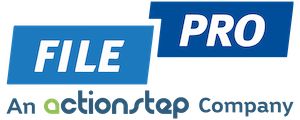Read Part 2 – Show me the money
In Part 2 we analysed how you bill and when you collect, and how this affects your debtors and cash flow. Part 3 will look at how to manage your debtors when they won’t pay.
Part 3 – rope ‘em & collect ‘em
When I was at university, no one ever discussed the conflict of serving as someone’s advocate while they were also a debtor.
These are two roles that have obvious and inherent conflicts. In my experience, many firms have a number of old accounts receivable for this reason.
These long-term debtors cause a number of cash flow issues. Sometimes firms use expensive factoring to raise cash or they seek more business. This can often add to the problem as they still don’t have good systems in place for collecting billings.
No matter how you look at it, these clients are costing you money (and lots of it). If you leave this article remembering just one thing, know this: you need to implement rigid and inflexible payment terms.
Four steps to implement rigid and inflexible payment terms
- State your terms
Decide what payment terms you need – this may be a week, fortnight or the 20th of the month.
Once decided, ensure you clearly tell your clients what the terms are. - Stick to your guns
If your firm has terms of 14 days, for example, do not send statements when your debtors are 30, 60 or 90 days overdue. This is an invitation for your clients to extend to a further term. - Request the full amount
As soon as a client exceeds your terms, request the full amount by:- an immediate cheque or direct credit
- a credit card payment
- a feeLink payment scheme
Use a cleverly written letter or a diplomatic call to explain that the debt has exceeded standard terms and now needs to be settled using one of these methods
- Don’t wait again
If the account isn’t settled within a couple of days, approach the client again – do not wait another 30 days. Firmly remind the client of their payment options. If you feel uncomfortable doing this yourself, organise for somebody else to do the credit control in your name.
By presenting the client with these options it is no longer a question of when the account will be settled, but how.
If all else fails
Clients who do not pay at this stage will probably never pay – and they’re probably not the type of clients you want to work with.
As discussed in Part 1, the best defence is a good offence – getting paid upfront will prevent these steps from ever being needed.
Dave Birch
Dave Birch is the Managing Director of smartAR, providers of innovative cash flow solutions to Australian & New Zealand businesses. The team at smartAR work with Accountants, Lawyers, Architects and professional service firms to help their businesses get paid… faster!

